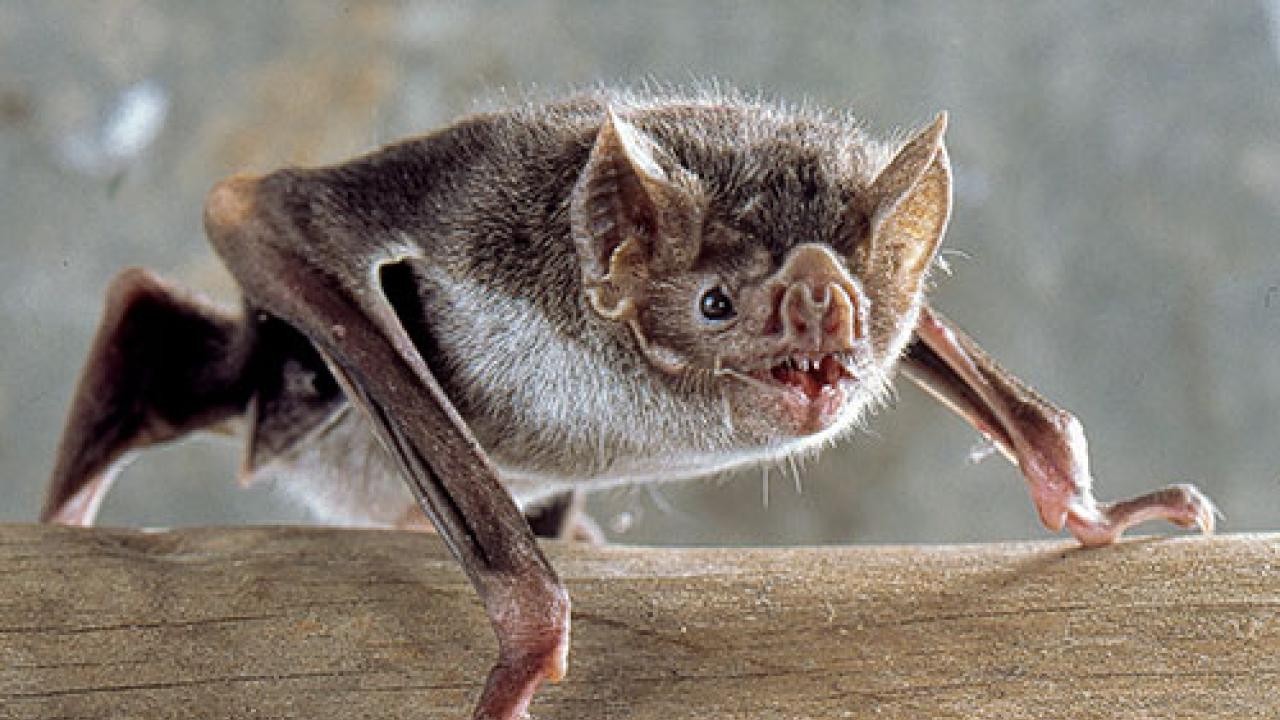
Bloodthirsty vampire bats may be a pain in the neck, but to their fellow colonists they are generous saviours ensuring the survival of their colony. That is because unlike most animals, vampire bats are selfless when it comes to sharing their blood bounty, a generosity that transcends family bonds. Whether that act of selflessness is natural or learned was the focus of an ICTP research paper recently published in the Journal of Theoretical Biology that could have implications for artificial intelligence and robots.
In the animal world, resource sharing outside the kinship bonds is rare. "Everyone should be selfish to maximize the ability to reproduce," says paper co-author and ICTP postdoctoral fellow Andrea Mazzolini of ICTP's Quantitative Life Sciences (QLS) section, echoing Darwin's evolutionary theory, "But for some reason, vampire bats are generous. The successful hunters share their bounty with the unsuccessful ones, even if those others are genetically unrelated."
Mazzolini's co-author, QLS scientist Antonio Celani, has studied animal behaviour through the lens of reinforcement learning. In 2018, he published a report in Nature detailing how mechanical gliders could learn to soar like birds with the help of machine learning. Could the unusual, generous behaviour of vampire bats be the result of reinforcement learning, the same technique used by migratory birds to develop efficient flying strategies? Mazzolini and Celani were keen to find out.
Their strategy: to model the bats' behaviour using Celani's reinforcement learning approach rather than using the evolutionary game theory that would traditionally be used to model such behaviour. "In our view, this is not a behaviour that bats are born with, but something that they learn during their lifetimes; they adapt their strategy depending on the conditions they perceive," explains Mazzolini. The framework of the Mazzolini/Celani model is based on reinforcement learning and optimal control theory. "We applied this framework to vampire bats to try to understand why the bats behave like this," Mazzolini says.
To the delight of the researchers, the batty behaviour fit their model. "What we try to find are the optimal behaviours," adds Mazzolini, "For a wide variety of parameters, the optimal solution for the bats is to be generous, to prevent a less-successful hunting partner from starving by sharing the blood bounty." This enforced generosity ensures that a healthy partner can gather blood in the future and when one fails, will feed the less-successful partner in return. "This reciprocity of enforced generosity emerged--we see this in our model."
Their model also indicated something unexpected: another optimal solution, again depending on the parameters, in which one selfish player exploits another generous player, for the satisfaction of both players. "This behaviour emerges when one of the players is much better than the other in gathering food, and then the less successful player still shares because they may fail in the future and will need the more skilled hunter to feed them," explains Mazzolini.
The modelling exercise allowed the researchers to develop general guidelines for understanding the unusual generosity of vampire bats, shedding light on the key mechanisms underlying this behaviour. A firmer grasp of these mechanisms could lead to applications far beyond the animal kingdom, extending to artificial intelligence and cooperative robots.
"Generosity is a form of cooperation, and in recent years there are many studies in robotics to understand why and how cooperation can improve the performances of a group of robots," says Mazzolini. This new frontier of artificial intelligence--cooperative intelligence--could be used to "teach" robots to solve a problem in a cooperative way, which could be much more efficient than solving it alone, Mazzolini explains.
The article, "Generosity, selfishness and exploitation as optimal greedy strategies for resource sharing", appears in the Journal of Theoretical Biology (https://doi.org/10.1016/j.jtbi.2019.110041).
--Mary Ann Williams
















